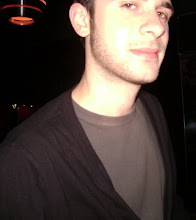As gay-identity politics is increasing on a world level, (as is evident with the debates over same-sex marriage) televised gay visibility is also becoming a (little) bit more common. But how does this overt representation of gay characters affect gay people in the real world? Is this idea of visibility at any cost truly beneficial?
As I've previously claimed (and state with each and every post), pop culture is used as a means of legitimization. For gay-identified people to be showcased on television means that gay identity is being broadcasted for the (normative) masses to see.

Problems of Legitimacy
What becomes problematic in all this is that the private notion that is a gay identity becomes public for normative audiences to scrutinize. In these cases, gay television characters move into the realm of the spectacle for the audience's normative gaze.
Visibility leads to legitimacy, right? And there are definitely more gay characters that are being shown. But which gay body is actually receiving this legitimacy?
My biggest beef with gay visibility is that the represented gay characters all conform to imposed heteronormative conventions. These characters are lacking sexuality (or are thrust in committed, monogamous relationships as soon as possible), speak constantly of marriage and of children (especially in the case of lesbian characters... Think Mad About You and Friends).
Homogeneity of Depicted Representations
 The homogeneity in which these gay characters are represented is both hilarious and sickening at the same time. But what do these representations mean for gay-identified people living outside of television's warm glow? To be deemed legitimate, they must conform to the televised character's standards... meaning desexualized, maintains a proper gender-identity, most likely middle-class, and a sidekick.
The homogeneity in which these gay characters are represented is both hilarious and sickening at the same time. But what do these representations mean for gay-identified people living outside of television's warm glow? To be deemed legitimate, they must conform to the televised character's standards... meaning desexualized, maintains a proper gender-identity, most likely middle-class, and a sidekick.Self-censorship is then used by gay people in order to conform to these standards. In order to be a "good gay", as judged by normative audiences, it is crucial not to be deviant. A social hierarchy is then formed, casting those who can't/don't conform to these depicted images.
Am I happy that I am seeing an increase of gay representation on television? Yes. Do I find these images entertaining? Heck yes! But until I start seeing images of the actual multifaceted umbrella that is the gay population, I will continue to fight and scream. It is naive to think that these normative representations are as positive as they seem. Is it really all that humane to cast others into the shadows in order to increase your own personal visibility?

No comments:
Post a Comment